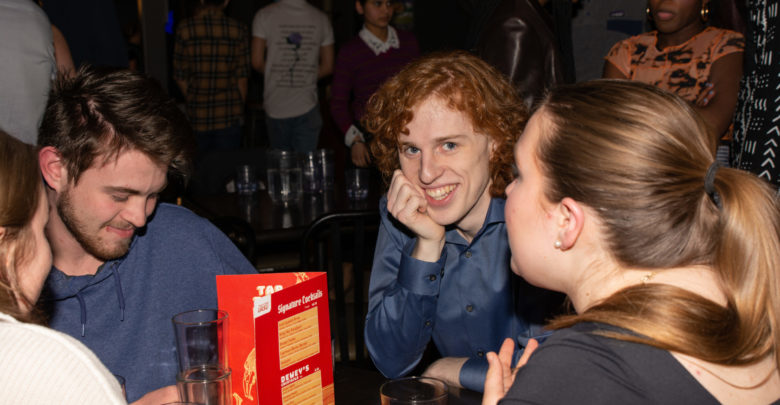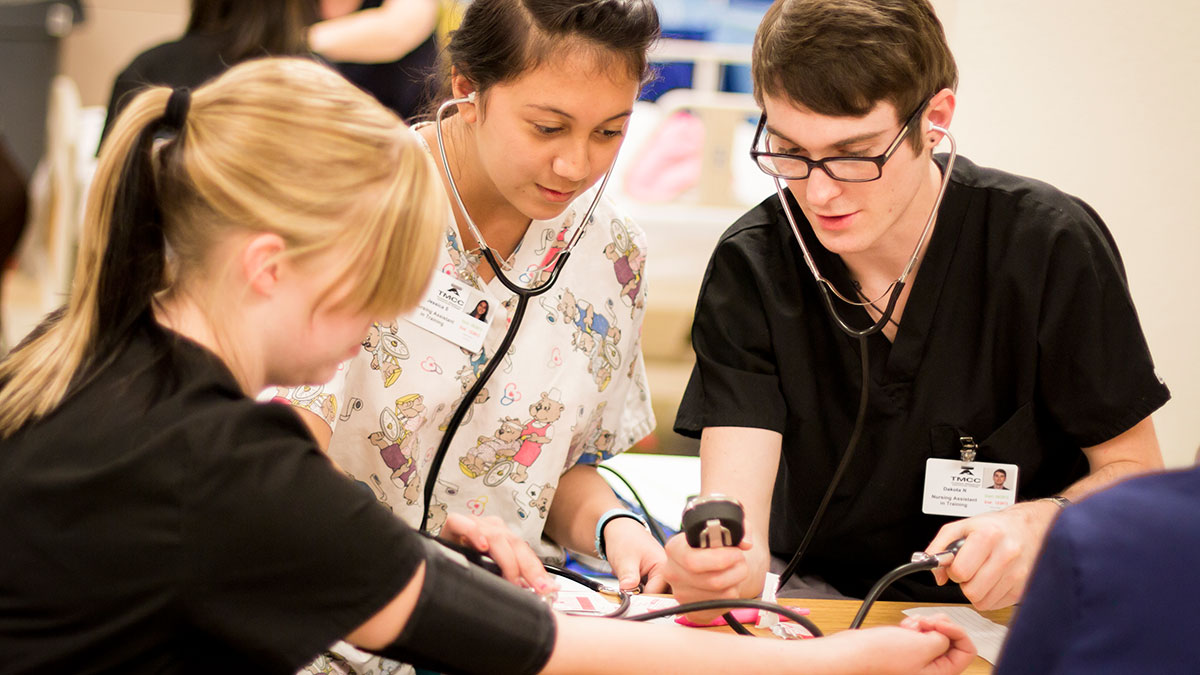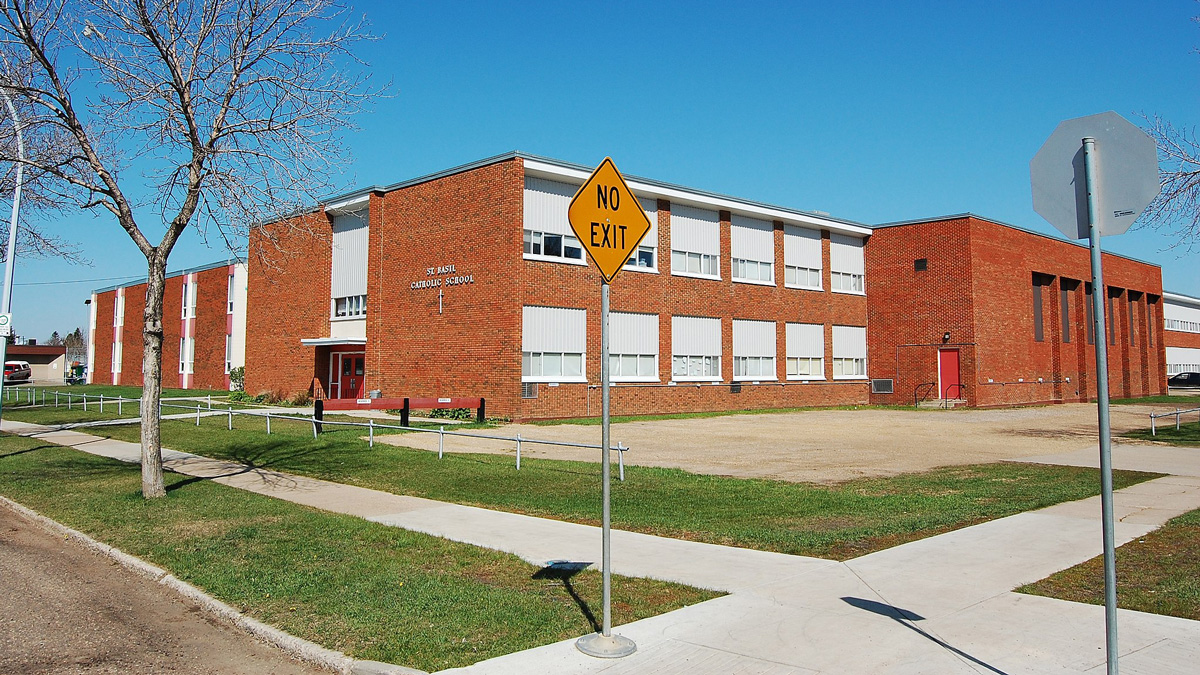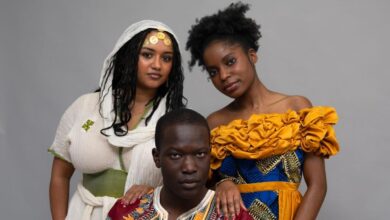SU Exec Report Cards 2023-24: Vice-President (Student Life)
Griffiths secured major advocacy wins when it came to sexual and gender-based violence, mental health supports, and supporting marginalized students on campus, but missed other opportunities that would've led to a stronger term.
 Jonas Smith
Jonas SmithEach year, The Gateway publishes an evaluation of the Students’ Union Executive and the Board of Governors representative. It’s impossible to discuss every aspect of their tenures, so these reports are largely based on the major components of the platform each executive campaigned on, and the most significant responsibilities of their respective positions.
And if you’re short for time, check out our TLDR for a bite-sized breakdown.
Michael Griffiths: B+
The University of Alberta Students’ Union (UASU) vice-president (student life) (VPSL) is responsible for non-academic advocacy to improve student life on campus. This involves mental health supports, events, student services, and residences.
Advocating for SGBV prevention in a limited environment
Sexual and gender-based violence (SGBV) has been an issue at Alberta post-secondary institutions for years. That’s why when a report released in August 2023 showed that 64 per cent of surveyed students experienced SGBV since attending the U of A, no one was really surprised. This number is much higher than the provincial average of 43 per cent. While this data is new, attempts to address SGBV on campus are not.
U of A student leaders have attempted to address SGBV for years, but major progress was made with Griffith’s predecessor, Joannie Fogue, who oversaw the advocacy for the 2022 SGBV policy. In our interview, Griffiths told me that Fogue made substantial changes to policy that center the survivor, which historically wasn’t the case. During his term, Griffiths focused on actually implementing this policy and the changes Fogue made, he said.
He added that advocating for change at the U of A is “a challenging environment to work in because of all the constraints.” From 2019-2022, the Government of Alberta cut $222 million from the U of A’s provincial grant. As a result, the university has less funding to spare, even when it comes to known issues like SGBV.
In the face of such large funding cuts, these issues continue to worsen and impact the U of A community. When lack of funding intersects with the reduction of critical services, like the U of A Sexual Assault Centre (UASAC), huge gaps in potential supports rear their heads.
Despite these limitations, Griffiths had plenty of areas to focus on, which helped him find success in this area. For instance, last year saw the hiring of Deb Eerkes, the U of A’s first Sexual Violence Response Coordinator, which resulted from years of student advocacy. However, her hiring was not permanent. In our interview, Griffiths told me that he’s advocating for the university to commit to a long-term renewal of Eerkes’ contract position by the end of the term. He added that if the U of A is “serious about sexual violence on campus,” they’ll bring Eerkes on permanently. If his efforts are successful, this will be a huge win for the campus community.
However, Griffiths wasn’t entirely successful in this area, which hindered his ability to get a higher grade. When the UASAC temporarily reduced its services in November, little information was communicated to the student body.
The SU didn’t comment publicly on the situation until February 1, which is disappointing. Despite the fact that students were left in the dark, they still knew that something was going on. Communicating issues to students when the university doesn’t should be a priority of the SU, especially since they are meant to represent us. This is especially true when it’s an issue that is so prevalent as SGBV. Since this falls under Griffiths’ portfolio, he should’ve ensured a quicker, more timely response.
Mental health supports extended to Augustana, CSJ neglected
In July 2023, Premier Danielle Smith released her mandate letter to the Ministry of Advanced Education. One of the mandate points called for investing $4 million per year in Alberta post-secondary institutions to add mental health professional spaces.
Issues like affordability, tuition, housing, and stress all impact the mental health of students, which Griffiths acknowledged in how he approached his advocacy. Griffiths worked on improving mental health supports on campus, especially through the implementation of the Student Experience Action Plan (SEAP).
In our interview, he said he worked with Kevin Friese, the assistant dean of health and wellness, to implement a new “step-care” model that will ensure the proper allocation of funding toward mental health supports. Griffiths said new clinicians will be fully-hired going into fall 2024, which should free-up capacity in counseling clinical services. On top of that, he pressured the university to make sure that the clinicians hired are diverse, he said.
As part of a minority, I understand the importance of needing a counselor that comes from the same background as you. It’s easier to trust and feel comfortable with your confidant when they really understand you and where you come from. However, not all students can afford to go out and find someone they identify with. I cannot express how important it is that the university provides those services for the students who have nowhere else to turn. Griffiths prioritized advocating for students’ needs, and he’s aware that applying pressure on the university to recognize these needs cannot stop.
Griffiths also made important progress in extending mental health supports to Augustana, a campus that has historically been neglected in this respect. In our interview, he recognized that distance and Augustana’s smaller population are both barriers when accessing and supplying supports. He said he worked with Friese and the Dean of Students Office to implement Inkblot Therapy at Augustana — an online counseling service that will provide more accessible and diverse options in terms of counseling services. Whether it’s religious or queer supports, students will have access to a counselor they feel comfortable with.
While not a bad idea, this isn’t an ideal scenario, as online counseling provides its own set of barriers — lack of privacy in shared residence rooms, unstable Wi-Fi, and unreliable technology could cause issues. However, because of Augustana’s small student population, having a team of clinicians just wasn’t possible, Griffiths said. Although in-person counselors are ideal, Griffiths managed to find a compromise that isn’t entirely limited in options to deliver on a much-needed service. He took the problem and worked to implement a tangible solution. In an ideal world, Augustana would get the same support as North Campus. Currently, that just isn’t possible.
His advocacy for Augustana also extended into other areas of his platform, namely SGBV. In addition to his advocacy into mental health supports, Griffiths also managed to secure funding to go toward rape kits for Augustana. A long-awaited advocacy win, it wasn’t fully achieved, although not to the fault of Griffiths. In the end, they weren’t able to secure government funding to train people how to use the kits properly.
Unfortunately, where Griffiths fell behind was extending his advocacy to Campus Saint-Jean (CSJ). While Augustana and North Campus got a lot of different supports, CSJ seemed to be a little neglected. This is drastically different compared to last year.
As Griffiths’ predecessor, Fogue, was a CSJ student, she understood what was needed to best support them. This stark contrast definitely isn’t helping Griffiths. When I asked him about what he’s done to advocate for CSJ, he mentioned installing zero-waste disposal stations. Compared to the amount of work he’s put in for the other campuses, this was disappointing.
CSJ students are often expected to come to North Campus for their supports, and sometimes, even their classes. While it might be easier for them to make it to North Campus than Augustana students, they’re enrolled at CSJ, and thus should have the right to receive their supports and education there.
With Augustana and North Campus getting more mental health supports, I’m left questioning why CSJ didn’t. I’m honestly disappointed that Griffiths didn’t do more to alleviate this disparity. This oversight is what prevented Griffiths from getting an A.
Two birds, one stone: increased financial transparency, amplified marginalized voices
Each election season, VPSL candidates promise similar versions of the same thing — advocating to the university to increase inclusivity on campus. Despite being a recurring promise, it’s extremely hard to deliver on. The VPSL is often restricted by what the university is willing and able to accomplish, which can slow down their successes.
In his platform, Griffiths committed to uplifting other voices so they can advocate for themselves. I believe this is how he found so much success in his advocacy this year — he consistently worked alongside students, not on their behalf.
Griffiths specifically mentioned the Indigenous Students’ Union (ISU) lounge renovations. Over the summer, the ISU had plans to renovate the space so it would be ready for students to use in the fall. But, Griffiths said that the university had fallen back on its commitments, which caused the project to stall. Griffiths said that because of his role, he has “good access to administration,” which he used to help amplify the ISU’s concerns.
“So I was able to … step in, apply a little more pressure to administration to live up to the commitments that they’ve made,” he said. “But ultimately, it was the Indigenous students.”
In our interview, Griffiths also emphasized the need for more accessible prayer spaces. On campus, there are limited prayer spaces for students, which can pose issues for groups like the Muslim Students’ Association, who organize a weekly prayer session. Adequate prayer spaces has been a concern for past VPSLs, with small improvements being made over the years. However, Griffiths has accomplished many big changes that go a lot farther in supporting students on campus.
The MSA has a broad base, which means they consistently outgrow the spaces they’ve historically used for prayer, Griffiths said. Because so many students are coming to these prayer sessions, the MSA has had to move to the Education Gymnasium. However, the MSA has to pay a fee to use this space, which wasn’t the case when they were booking smaller spaces.
Griffiths told me he’s been meeting with Vice-provost (equity, diversity & inclusion) Carrie Smith, the Dean of Students Office, and the MSA to ensure that the university pays the rental fees and continues to find adequate prayer spaces for students, since the Education Gym isn’t a long-term solution. While this hasn’t been achieved yet, this is a strong step in the right direction. At the very least, Griffiths has laid down the groundwork so his successor can pick up where he left off.
Leading into Griffiths’ term, there were concerns from the student body relating to the cost of events hosted by the SU. These concerns largely stemmed from the Break the Record (BTR) event put on in fall 2022. The total expenses of BTR amounted to $144,309, with the SU spending $49,309. Namely, students were upset that the SU organized an event that cost so much, with minimal interest from students.
In response, Griffiths planned events that were requested by students and worked to make them low-budget, as promised in his platform. When I initially saw Griffiths’ platform, I was worried he would go too far the other way. Students would either get no events, extremely cheap ones, or a repeat of last year. A university of our size really thrives on events that promote community engagement, and the backlash from BTR was an opportunity for the SU to show their growth. Thankfully, Griffiths seized this opportunity, and I wasn’t disappointed.
In our interview, Griffiths told me that he planned smaller events that had a specific focus, like cultural events. This allowed him to tackle two birds with one stone — increased financial transparency, and leaning into the needs of students.
One of the most significant events Griffiths helped organize was the third annual residential school memorial. In our interview, he expressed that he didn’t want the “financial burden” of educating students on Indigenous issues to continue to fall on Indigenous people. He’s right — it shouldn’t.
Indigenous people are faced with the burden of educating non-Indigenous people every day — regardless of if we intend them to or not. It’s even worse if the financial burden of settler education is falling on Indigenous peoples, too.
Absorbing the cost was clearly a better use of funds than BTR was. The residential school memorial wasn’t the only event Griffiths helped organize, either. In our interview, he mentioned I-Day, which celebrates international students on campus, and Indigenous Celebration Week. All of these events were necessary, enhanced campus life, and overall left a better impression than a tone-deaf dodgeball game.
Taking criticism from last year and turning it into a meaningful event such as the residential school memorial helped Griffiths get a higher grade. Where he could have improved, though, is doing more of these. I would have loved to see Griffiths reallocate funds to support a more diverse array of cultural events. Supporting Indigenous people is a great first step, but campus would benefit from more perspectives being uplifted.
Upon starting his term, Griffiths’ had a long road ahead of him. As the VPSL, he was in charge of a portfolio that looks to support marginalized students, while being part of a historically un-diverse executive team. In spite of that, Griffiths’ advocacy saw important successes as the result of prioritizing the issues that mattered the most to students. However, his advocacy wasn’t without flaws, either. Although his advocacy could have gone farther across three campuses, Griffiths laid a strong foundation for his successor, and achieved important wins for students.
TLDR: Griffiths earned his B+ by securing massive wins in SGBV and mental health supports for students on North Campus and Augustana. However, because his advocacy didn’t extend to CSJ, his grade didn’t quite hit the A-range. This doesn’t mean he didn’t do great work in other areas though — marginalized voices were uplifted over Griffiths’ term, both through his advocacy and through the events he helped organize.
A-range: This person has fulfilled the promises they campaigned on and more, has created tangible change during their tenure, and has shown a commitment to improving the lives of students. Their GPA is top tier.
B-range: This person has done their job consistently well, but has not made any remarkable changes, or has fallen short on important goals they set out in their platforms. They’re doing fine, but it’s nothing to phone home about.
C-range: This person has done their job sufficiently, but has failed to make significant progress in the areas most relevant to their portfolio, or has essentially abandoned a major part of their platform. They’re still passing with a safe buffer though, and Cs get degrees!
D-range: This person has done a very lacklustre job, and has not sufficiently fulfilled their campaign promises or the responsibilities of their position.
F-range: This person has not done their job, has not represented students, and has not fulfilled their campaign promises whatsoever.




